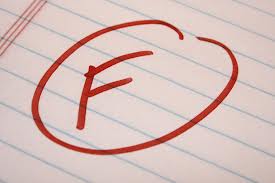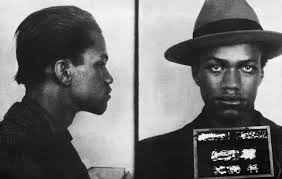 I’m not a huge fan of failure. I rarely dance and I’ve always been the type to not make a move on a girl until I see the “It’s already yours” look in her eyes.
I’m not a huge fan of failure. I rarely dance and I’ve always been the type to not make a move on a girl until I see the “It’s already yours” look in her eyes.
Is that cowardly? Probably. But that’s how I grew up.
When I was younger, few things scared me as much as failure. I did everything I could to make sure nothing blew up in my face. My parents emphasized taking advantage of all the opportunities and thus, did all they could to make sure I didn’t fail either.
In 5th and 6th grade, mom would work with me on my essays so I got 5s and 6s on all the CIM categories. It certainly helped me to learn how to make my writing stronger. One way or the other, writing was successful for me. I knew what the teachers were looking for so it was safe. At the same time, I didn’t find my voice until I started dreaming up my own concepts and writing all on my own.
Even the subjects I wasn’t great in, like science, only lasted as long as I needed them to. I ran damage control on my GPA, knowing I needed it for getting into college.
It wasn’t enough to take advantage of every opportunity. I had to be better than everyone else, at least if I cared.
Being Black, you already have to be five steps ahead to win in competition with white people in this white environment. The need to make sure I was always alright and in a position to be the best has opened doors. At the same time, vague success has been my purpose in life, standing in for a true passion. Anytime someone has asked me what my passion is, I’ve replied with something I’m good at.
Now I’m 25 and realizing a damage control lifestyle can only take you so far.
I had a safe job but it sucked a little bit out of me every day. I ended up looking up to the people taking risks. After all, they were the ones giving people like me orders.
It’s funny. After 25 years of being the model for “doing it right,” I realize I’m at a disadvantage.
I don’t know how to fail. Trying things that most likely won’t work worries me.
Meanwhile, someone that’s had a lot of setbacks early on and has learned (earned) things the hard way is ready to surpass me, given the opportunity. When he faces adversity, he knows how to bounce back. He knows how to build things. All I know is avoiding adversity. He’ll create the thing I spent way too much time analyzing.
Ironically, the few undisputed failures I’ve had, have been good learning experiences. And honestly, they weren’t that bad. After getting a $500 ticket, I learned how to talk to police. When I bombed at a talk for high schoolers, I recognized how I needed to refine my presentation. When my basketball coach made it clear I was lacking certain skills to succeed at the next level in basketball, I figured out how to work to get them. Even when a professor gave me a C for not talking enough, which cut off my path in fiction writing, it taught me the value of speaking up for myself.
Sometimes I wonder if we’re mass producing a bunch of people like me. We’re taught failing is the worst thing you can do in school. But when you get older, you find that you can’t make an impact without taking risks. You go in knowing you might lose a lot.
 So why is it a surprise every time we hear an underdog story? Why wasn’t Malcolm X supposed to become a great leader? Why wasn’t Mark Zuckerberg supposed to become a mogul?
So why is it a surprise every time we hear an underdog story? Why wasn’t Malcolm X supposed to become a great leader? Why wasn’t Mark Zuckerberg supposed to become a mogul?
As the saying goes, scared money don’t make none.
So what do you do when you’re 25 and you don’t know how to fail?
I feel like I’m in the awkward position of seeking out failure. Maybe that should be my purpose in this next phase of life. It’s certainly a conversation starter.
“What are you up to these days?”
“Fail hunting.”
“What?”
“I’m a professional failure. I try things that seem interesting, knowing they have a high chance of ending poorly, all for the sake of learning.”
My family is going to love this one.